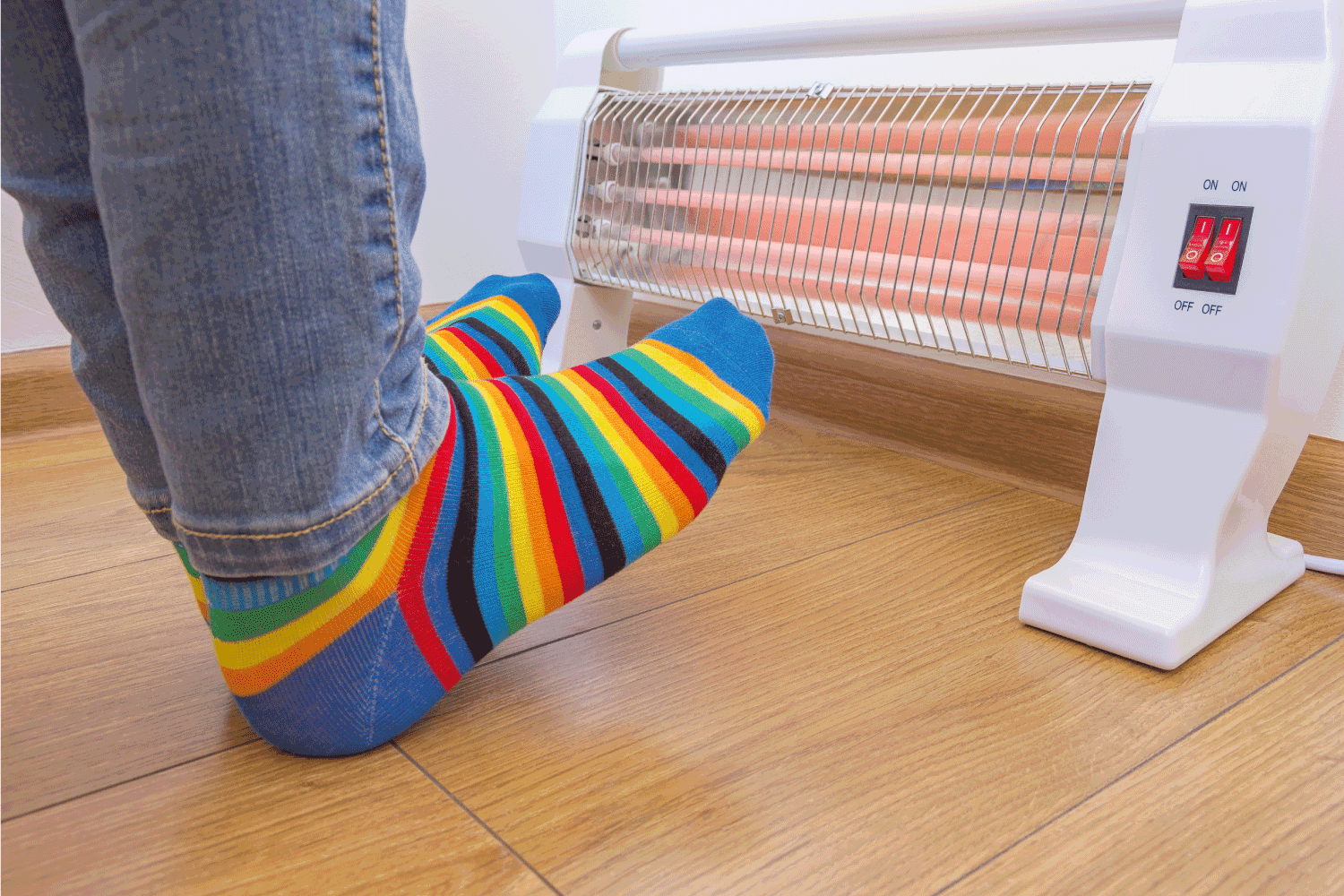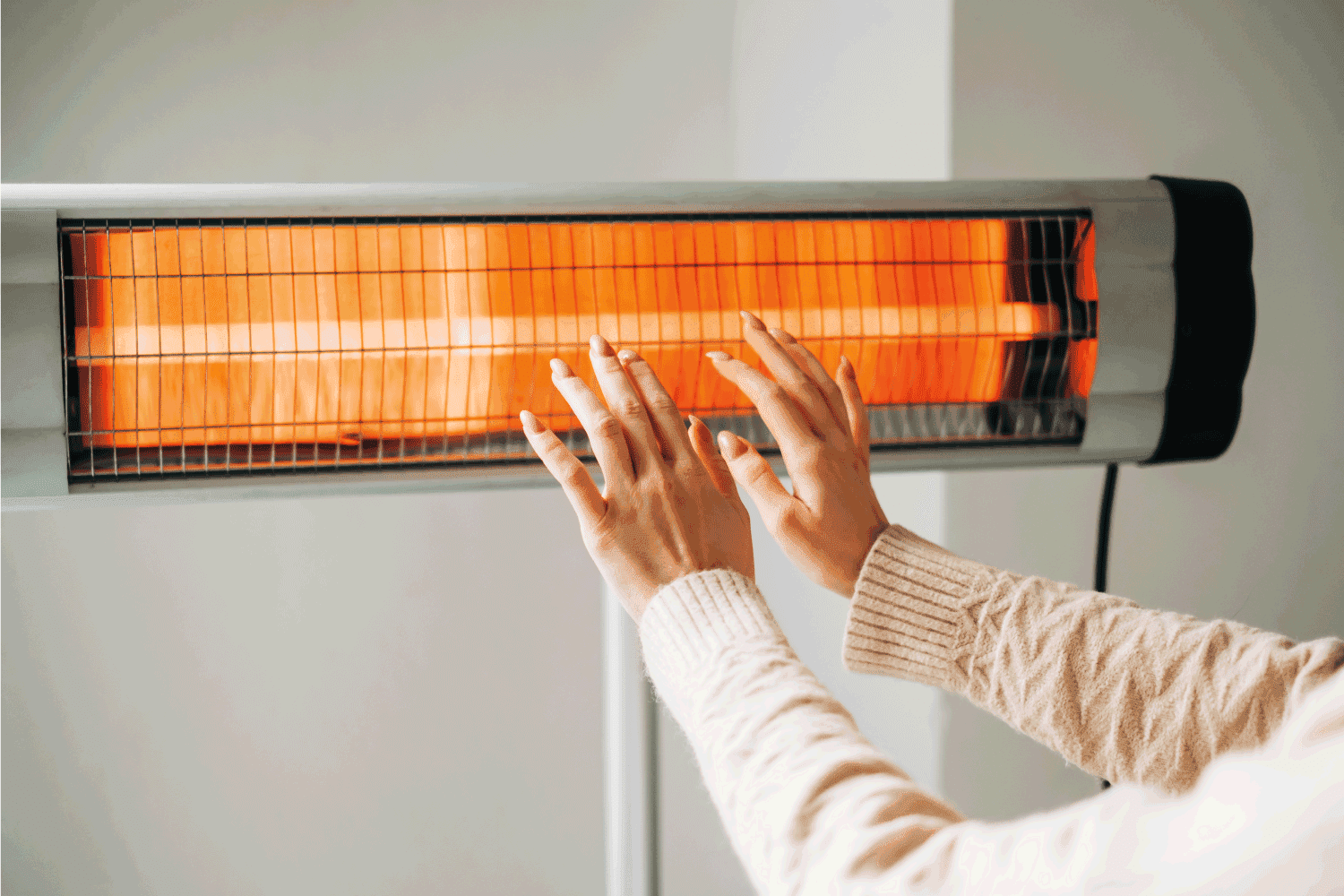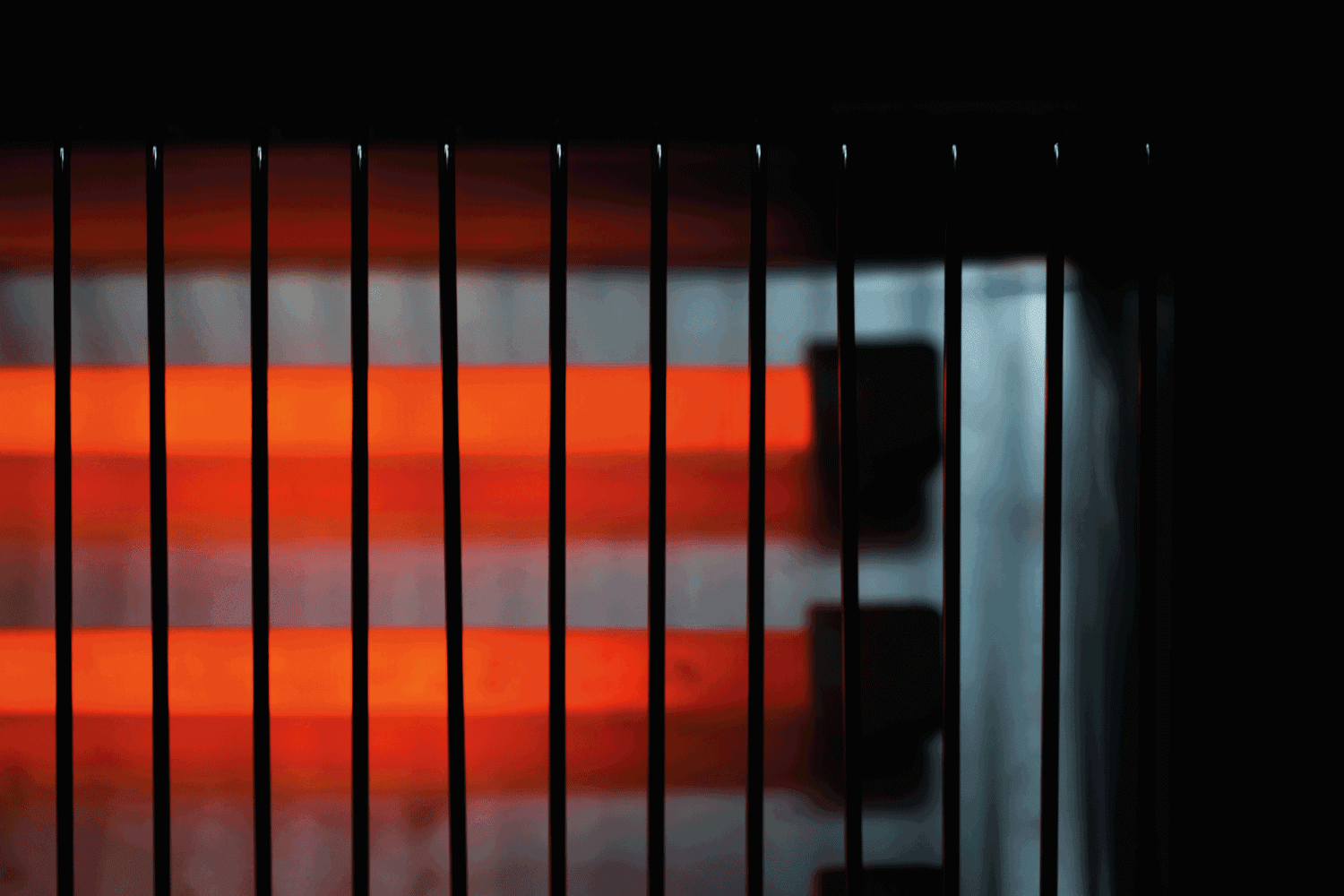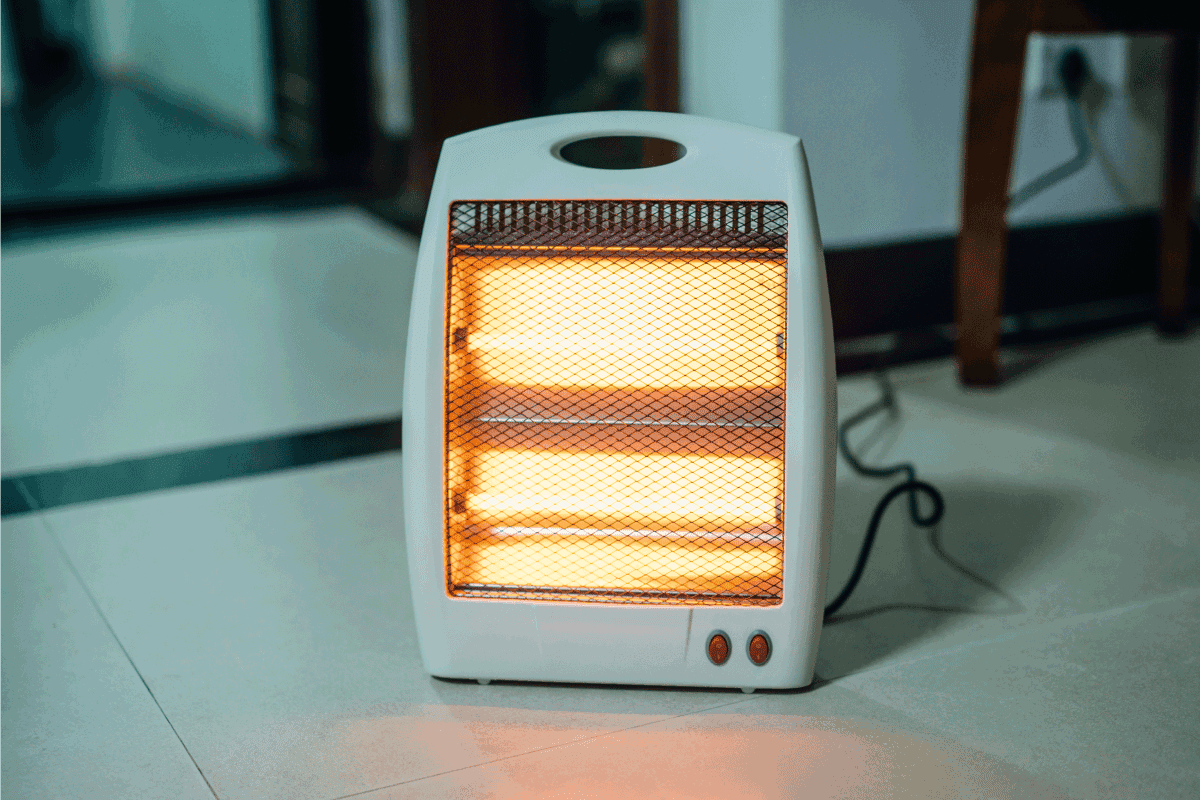Air conditioners running during the summer months and furnaces or boilers during the winter—wondering which one consumes more electricity? Well, wonder no more because we’ve researched this perplexing question to bring you an answer with a thorough explanation.
This might come as a surprise to some, but it takes less energy to cool than to warm indoor spaces. You would need less energy to simply move heat out of a room, as air conditioners do, than to create enough heat to warm up that same room, as furnaces and boilers do.
Read on to find out the different factors that can negatively or positively impact the energy consumption of an air conditioner or a furnace/boiler system. The sections below also include tips on how to take control of these factors and make them work to your advantage, and save you money on your heating or cooling bill!

What is the perfect world of heating and cooling?
It is important to note that the answer is dependent on perfect environmental conditions, everything working properly, and everything functioning as intended. The energy consumption of air conditioners and furnaces is greatly affected by how much hot or cold air escapes.
Insulation greatly affects how much energy is consumed by an air conditioner and heating system. A perfect world of cooling and heating would be a house that is well insulated with no air leaks anywhere.

A cooling and heating perspective
A recent scientific study published in the journal Environmental Research Letters by IOP Publishing Ltd. compared air conditioning and heating in Miami and Minneapolis and determined which one consumes more energy. They discovered that an average air conditioner is around four times more efficient in utilizing energy than an average furnace or boiler.
Interestingly, while the energy source of cooling appliances in the US is almost exclusively electricity, this is not the case for heating. Only around 7% of heating appliances in the US currently use electricity.
Therefore, living in cold climates such as Minneapolis, Milwaukee, Rochester, Buffalo, or Chicago, is more energy demanding than living in hot climates such as Miami, Phoenix, Tampa, Orlando, or Las Vegas, for example.

Which is more expensive, gas or electric heater?
Electric furnaces cost less than gas heaters and are easier to install with cheaper installation costs. The maintenance cost of electric furnaces is also less expensive than the maintenance cost of gas furnaces.
However, the cost of electricity is more expensive than gas. Gas prices have generally gone down in recent years compared to electricity prices that are on the rise. Therefore, the lifetime cost of an electric furnace is higher than the lifetime cost of a gas furnace.
What are the pros and cons of gas and electric heaters?
Gas furnaces are cheaper to operate, and they can heat your home more quickly. Gas furnaces are also more efficient than their electric furnace counterparts.
On the other hand, electric furnaces require a lower initial investment, and they stay in good condition longer than gas furnaces—lasting up to 30 years or more. Also, electric furnaces are safer because they have a lower risk of causing fires and do not bring the danger of carbon monoxide poisoning.
The disadvantages of gas furnaces include more expensive and complicated installation—professional installation is always a must. They wear out faster and are generally more dangerous because of their higher risk of causing fire and carbon monoxide poisoning.
Electric furnaces cost more to use month-to-month, and it takes longer to reach high temperatures. It is less efficient because it consumes more energy to heat an entire house.
How to save money on heating?
- One of the cheapest ways to save on heating is to let in the sunlight. Pair this with wearing warm clothing, and you have two ways to keep yourself warm that will not cost you anything.
- Sealing air leaks is one of the first things you should do to lower your heating bill. Check your ceilings, windows, doors, walls, ceilings, electrical outlets, and switches for escaping air.
- Holes, gaps, and decaying weather stripping are areas of possible leaks. Do the candle test to help you spot leaks.
- Programming the thermostat helps save money on heating. You can have the thermostat automatically turn down the heating whenever you go to bed at night and automatically start to increase the heat at least half an hour before you wake up.
- Shutting doors in unsued rooms also help in reducing energy consumption for heating. A closed room keeps the heat longer. Thus, it helps the furnace reduce the heat it needs to produce.
- Cooking food at home also helps warm the air inside the house. You can keep the oven open after using it to bake goodies so that the remaining heat can spread into your house.
- Regularly replacing the filters on your furnace can also help save on heating bills.
- The damper on your fireplace should always be closed, and there should be a draft guard to cover the opening of the fireplace. If you decide to use the fireplace, make sure to have it cleaned first before starting it up.
If you plan to replace your furnace, our article on how much it would cost to replace a furnace here might interest you.

How much electricity does a space heater use?
According to Silicon Valley Power, most space heaters use an average of 1,500 watts per hour. It may not sound like much, but this can easily double or triple your electric bill if left running for hours daily.
However, it can help save money on your heating bill if you use a space heater to heat specific rooms for brief periods so that you don't need to increase the furnace thermostat.
Check out this portable electric space heater with a thermostat from Amazon here.
Do air conditioners use a lot of electricity?
90% of new homes use centralized air conditioning, and these large systems consume an average of 12,000 Btus of energy each hour or an equivalent of 3,500 watts of electricity. Window air conditioning units consume 5,000 Btus per hour or an average of 1,400 watts for medium-sized models.
How to save money on air conditioners?
Similar to heating, the biggest impact to cooling is an attic that is not properly insulated. A house can easily lose up to 40% of its cool air through poorly insulated attics.
We have a great article here that can help you estimate the cost of insulating a 1,500 square foot house.
- Using a smart thermostat can help you save money from air conditioning. Set your thermostat to turn the air conditioning off when everyone leaves for work or school and automatically turn it on 30 minutes before the first family member comes back home.
- A dirty air conditioning filter forces it to work harder and thus consume more energy. Clean it at least once each month.
- Protecting the outdoor condensers of centralized home air conditioning help save energy. Condensers in the shade use 10% less electricity to operate.
- Shift to a window air conditioning. A central air conditioning system consumes an average of 3,500 watts per hour, and it cools areas in your house that are not in regular use. A small window air conditioning unit consumes an average of only 900 watts per hour.
- Ceiling fans make you feel cooler. And this allows you to dial your air conditioning to a slightly higher temperature and save electricity. It also generally consumes less electricity than stand fans.
- Wearing lighter clothes can also help make you feel cooler and more comfortable during warm months.
Is it cheaper to run AC or a fan?
Fans, in general, are cheaper to run than AC. Additionally, a DC fan is even more efficient than the older AC fan models. However, this is a classic apples and oranges question because an AC and a fan do different things.
A fan moves air over your skin faster to speed up evaporation, which in turn cools you, while an AC lowers the air temperature in a room. If the surrounding air is at 90 degrees, the fan will also be blowing 90-degree air at you.
What might surprise you is that using both simultaneously can help save money on electric bills from AC usage.
A room cooled by an AC to 71 degrees will feel no different from a room cooled to 78 degrees with a fan circulating the cold air around. If your AC costs $180 monthly when maintaining 71 degrees, that cost will drop to $125 monthly when set to maintain only 78 degrees.
Check the Pelonis DC motor ultra-quiet 16-inch fan from Amazon here.

Conclusion
It takes less energy to cool an indoor area by one degree than to warm it by one degree. And having a well-insulated house can help reduce the bill for both. Sealing air leaks can also help reduce bills on both.


